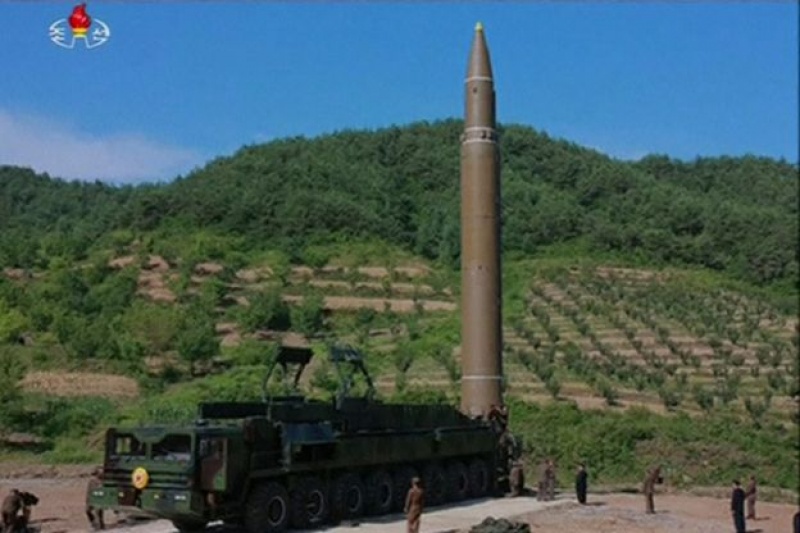
North Korea says it has successfully tested its first “intercontinental ballistic missile” (ICBM).
A state television announcement said the missile, which landed in the Sea of Japan on Tuesday, could hit targets anywhere in the world.
But the US and Russia said the missile had a medium range and presented no threat to either country.
North Korea has increased the frequency of its missile tests, in defiance of a ban by the UN Security Council.
The announcement on North Korea state television said the Hwasong-14 missile test was overseen by leader Kim Jong-un.
It said the projectile had reached an altitude of 2,802km (1,731 miles) and flew 933km for 39 minutes before hitting a target in the sea.
North Korea, it said, was now “a full-fledged nuclear power that has been possessed of the most powerful inter-continental ballistic rocket capable of hitting any part of the world”.
It would enable the country to “put an end to the US nuclear war threat and blackmail” and defend the Korean peninsula, it said.
While Pyongyang appears to have made progress, experts believe North Korea does not have the capability to accurately hit a target with an ICBM, or miniaturise a nuclear warhead that can fit onto such a missile.
Other nuclear powers have also cast doubt on North Korea’s assessment, with Russia saying the missile only reached an altitude of 535km and flew about 510km.
US President Donald Trump also responded swiftly on Tuesday.
On his Twitter account he made apparent reference to North Korean leader Kim Jong-un, saying: “Does this guy have anything better to do with his life?”
“Hard to believe that South Korea and Japan will put up with this much longer. Perhaps China will put a heavy move on North Korea and end this nonsense once and for all!”
President Trump has repeatedly called on China, Pyongyang’s closest economic ally, to pressure North Korea to end its nuclear and missile programmes.
On the prospect of North Korea being able to strike the US, he tweeted in January: “It won’t happen”. However experts say it might – within five years or less.
Beijing called for “restraint” following the latest test on Tuesday.
Foreign ministry spokesman Geng Shuang said China was opposed to North Korea going against clear UN Security Council resolutions on its missile launches.
Meanwhile, a spokesman for Prime Minister Theresa May said the UK “stood alongside the US and our allies to confront the threat North Korea poses to international security”.
Source: BBC

































